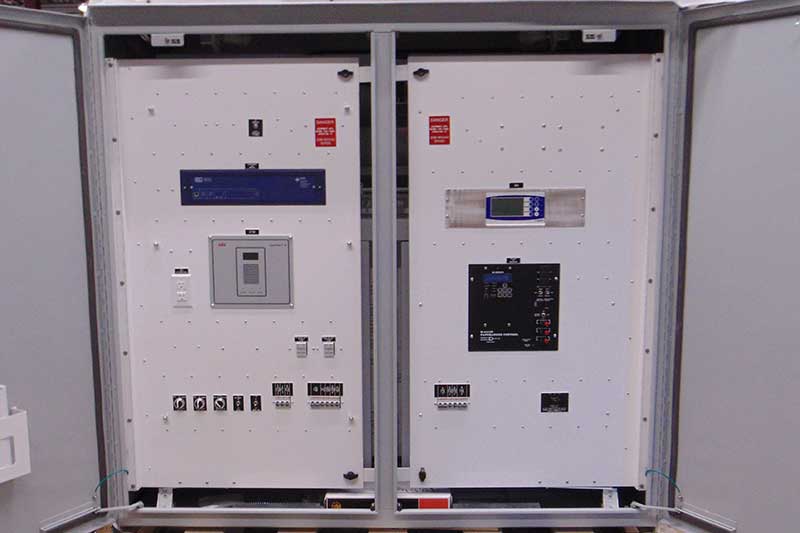
Custom control panels are designed and built to control specific devices, machines, systems or processes. They are tailored to meet the unique requirements of a particular application or industry and can vary widely in complexity and functionality. Below are some common types of custom control panels.
Operator console panels
Operator console panels are used to provide operators, technicians, or personnel with a centralized location for safely and efficiently controlling, monitoring, and managing complex systems, processes, or equipment based on real-time data and feedback. They can be constructed in a range of ergonomic designs, such as a desk format that allows the operator to see and monitor controls from a sitting position, or a pedestal design where the operator works in a standing position. These consoles may include buttons, switches, knobs, touchscreens, and other control elements for conducting operations and adjusting parameters.
Vehicle-mounted control panels
Vehicle mounted control panels are installed in or on vehicles to manage and control various vehicle functions and equipment. They are designed to enable operators to control and monitor a wide range of functions and devices in trucks, buses, emergency vehicles, and more.
Local control panels
Local control panels are typically located close to a specific piece of equipment, machine, or system, allowing operators to control and monitor the associated equipment without the need for remote access. Large machines may require multiple local electrical control panels at each manufacturing process. Controls may be different on each panel as the functionality of the manufacturing station differs.
Local control panels may also contain PLC equipment, reducing the amount of wiring from field devices back to the main panel. They are also used for call conveyance systems at the production floor level to enable line workers to initiate a call for parts as required.
Lighting control panels
Lighting control panels are used to control an array of lights in various environments, such as residential, commercial, industrial and architectural spaces. Specific examples include baseball stadiums, airport runways, and large warehouse and manufacturing facilities. Lighting control panels provide users with the ability to control the intensity, timing, and configuration of lighting fixtures, contributing to energy efficiency, comfort, and aesthetics.
Food and beverage panels
Food and beverage panels generally consist of a PLC and HMI and are often used for process control of a product, such as liquids, powders or gases. The PLC can be programmed to contain batch recipes that can be accessed by the operator though the HMI.
Test panels
Test panels are often used for motor testing, simulating I/O, software validation, and training class environments. They can offer features such as multiple voltage sources, a human machine interface (HMI), provisions for testing both digital and analog I/O, and various plug configurations.
Conveyor panels
Conveyor panels generally have a PLC, HMI programming, starters and VF drives. More sophisticated systems might also have a camera system that can be used for highlighting flaws in parts, as well as barcode readers for determining product transportation routing.
Sanda panels
The hardware in these enclosures are servers that support a SCADA system (supervisory control and data acquisition). Sanda panel features include UPS (uninterrupted power supply) backup and ethernet network switches. To help troubleshoot the servers, a monitor and pull-out keyboard may also be incorporated.
CCP custom control panels
CCP has a long history of designing and building custom control panels that meet the specific needs of our customers. Our creativity knows no bounds. Contact us today to learn about CCP solutions to your custom control panel challenges.